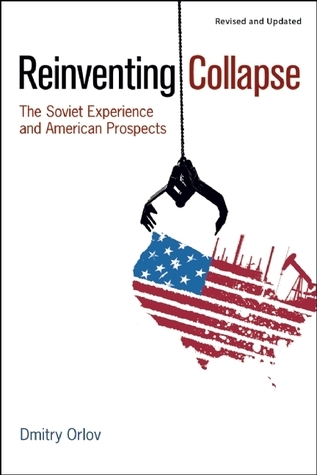What do you think?
Rate this book


208 pages, Paperback
First published January 1, 2008
The colonies’ precocious move to leave the fold of the British Empire has made the US something of a living fossil in terms of cultural evolution. This is manifested in some trivial ways, such as the inability to grasp the metric system or its distinctly 18th century tendency to make a fetish of its national flag, as well as in some major ones, such as its rather half-hearted embrace of secularism.
For-profit medicine is an institution of highly questionable merit. The additional nonsensical twist of health insurance, which is only affordable to those who have a permanent, full-time job, makes it a powerful tool of social tyranny. Those without health insurance are a single accident away from losing their savings, their possessions and being saddled with debt they will never be able to repay no matter how hard they work. The fear of this nightmare scenario keeps people securely bound to their jobs. This means that Americans are either in a job they are not at liberty to quit, which is a form of indentured servitude, or are one accident away from becoming slaves to their medical debt, which is another form of indentured servitude.... Doctors, in concert with pharmaceutical companies, reinforce this system of medical enslavement, by prescribing, as often as they can, regimens of drugs rather than courses of treatment. (91)
[T]he actual concept of insuring someone's health is itself preposterous. Insurance applies to rare, unforeseen events, such as fires or floods, not events that guaranteed to occur to everyone, such as sickness and death....Further, life insurance is bad for your health: in a situation where basic treatment is always provided unconditionally, but chronic or fatal conditions are given as much attention as society can afford, people make an effort to stay healthy. (92)
In the United States, higher education is rarely about educating people, in the sense of them learning how to learn, and having the intellectual freedom to do so. It is most commonly about training: the imparting of temporary, quickly obsolescent skills, not universal knowledge....But it is mainly about securing unquestioning obedience within a complex rule-following system....The elegant trick of the American higher education system is that the obedience it exacts is automatic: the educated citizens do not know what disobedience would be like, beyond the seemingly pointless, self-defeating refusal to profit from the system, which is really all that they have been taught how to do.(97)
Although people often bemoan political apathy as if it were a grave social ill, it seems to me that this is just as it should be. Why should essentially powerless people want to engage in a humiliating farce designed to demonstrate the legitimacy of those who wield the power? In Soviet-era Russia, intelligent people did their best to ignore the Communists: paying attention to them, whether through criticism or praise, would only serve to give them comfort and encouragement, making them feel as if they mattered. Why should Americans want to act any differently with regard to the Republicans and the Democrats? For love of donkeys and elephants? (114-5)
The ability to stop and smell the roses--to let it all go, to refuse to harbor regrets or nurture grievances, to confine one's serious attention only to that which is immediately necessary and not to worry too much about the rest--is perhaps the one most critical to post-collapse survival.... Detachment and indifference can be most healing, provided they do not become morbid. It is good to take your sentimental nostalgia for what once was, is, and will soon no longer be, up front, and get it over with. (130)